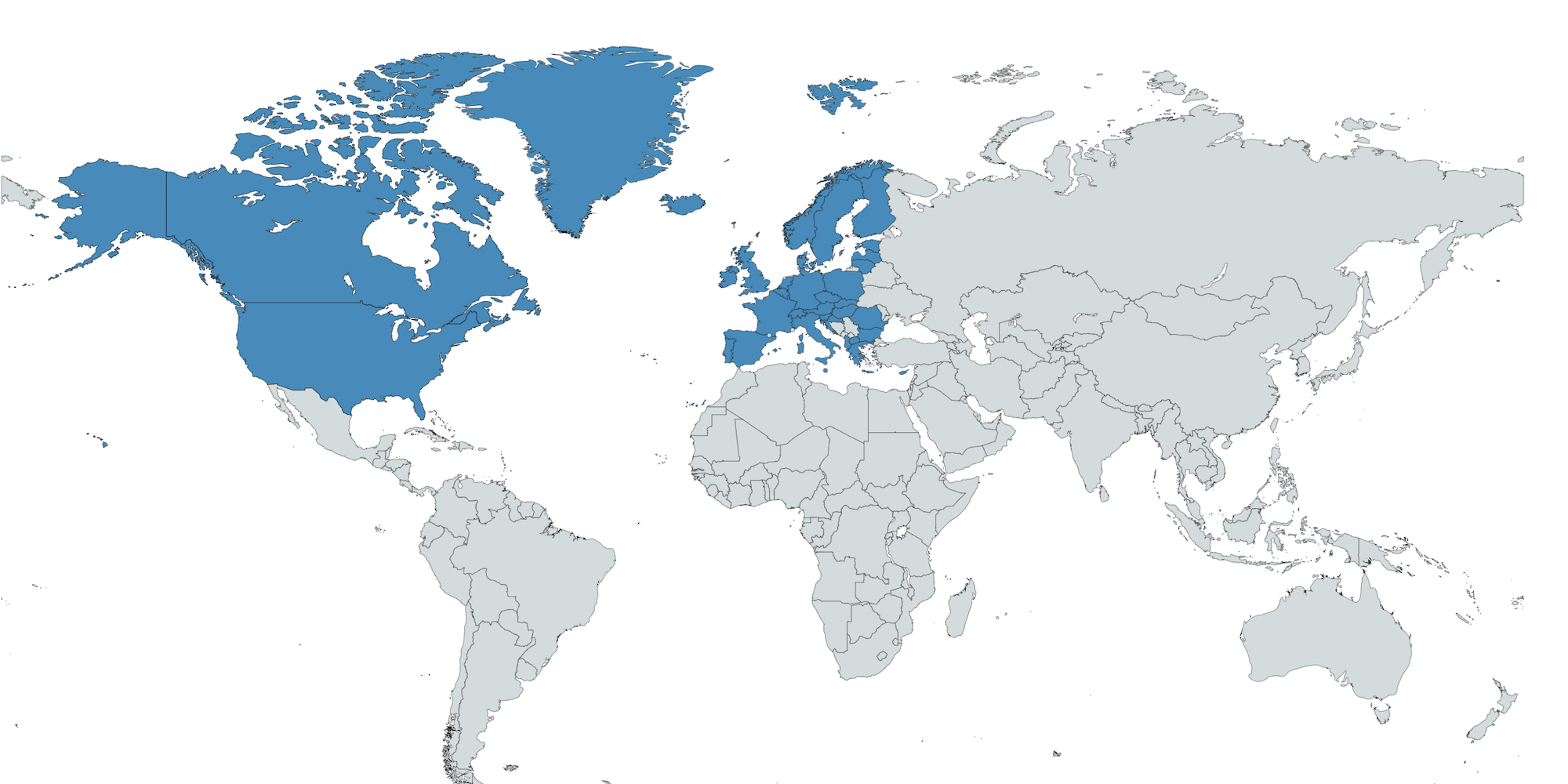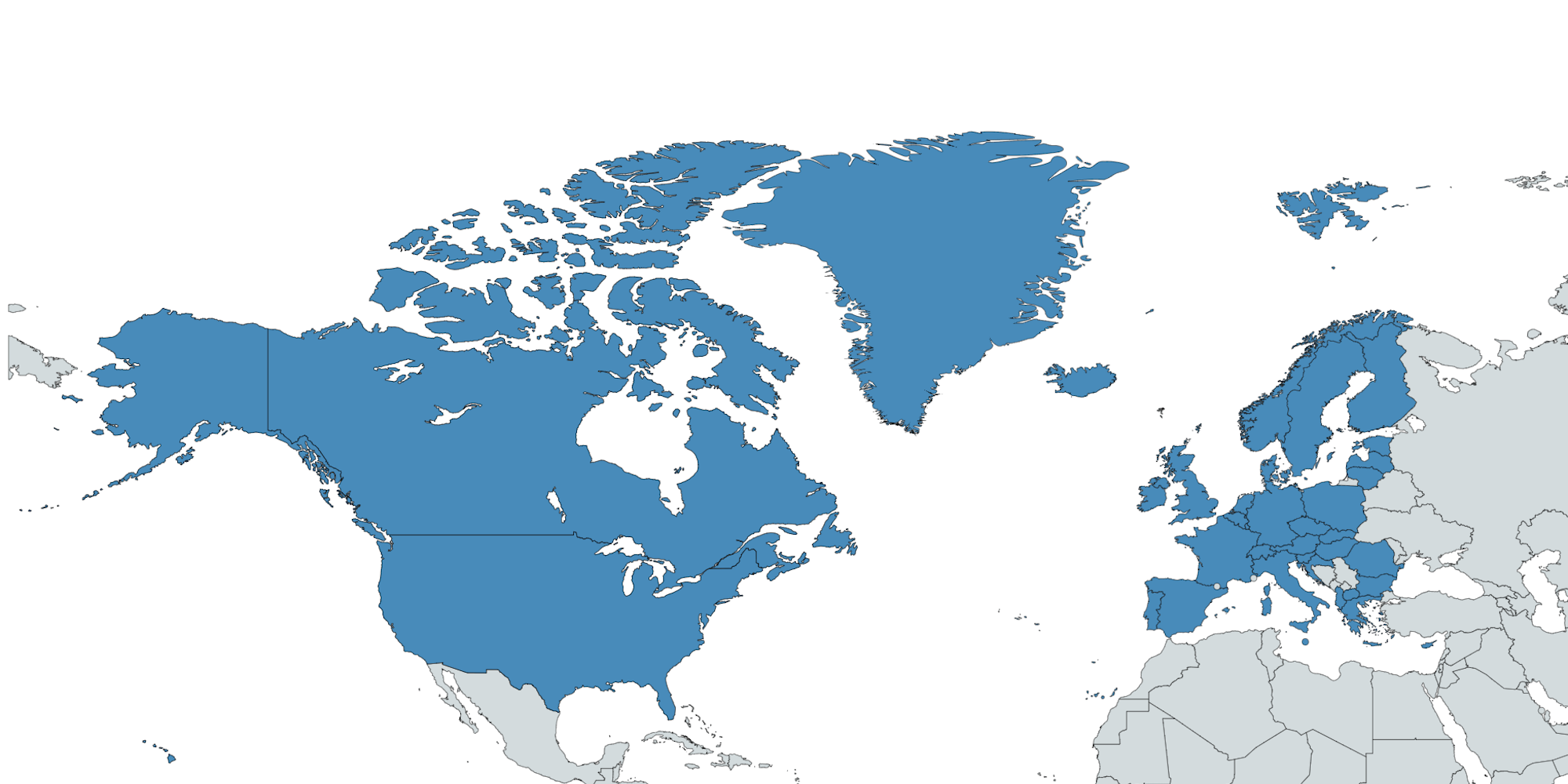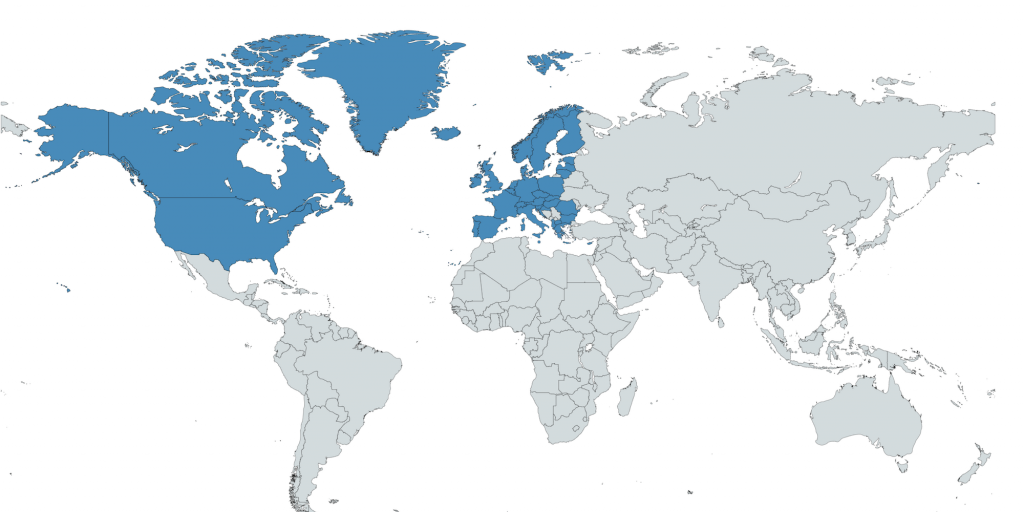
- 33 countries have blocked Russian planes from their airspace, including US, Canada, and the EU.
- Biden announced the US would join the ban on Tuesday during his State of the Union address.
- Putin retaliated on Monday by closing Russian airspace to 36 countries.
Thirty-three countries blocked Russian flights from their airspace following President Vladimir Putin's invasion of Ukraine, as of Wednesday.
All 27 EU countries, as well as Albania, Canada, Norway, Switzerland, the UK, and the US imposed the ban after Russian forces invaded Ukraine. The ban is shared by some of the world's most powerful nations, including most members of NATO.
President Joe Biden signaled that the US would be the latest to close its airspace to Russia in Tuesday's State of The Union address, saying Putin has "no idea what's coming."
With the flight ban, most countries provide exceptions for diplomatic or humanitarian reasons, but otherwise the step significantly limits the global movement of planes owned or chartered by Russian — including those of Russian oligarchs.

The move is distinct from enforcing a no-fly zone over Ukraine itself, which Ukrainian President Volodymyr Zelensky has pleaded with NATO for.
The bloc is reluctant to close Ukraine's sky, as it risks a major escalation if Putin were to defy the ban — forcing NATO into military retaliation.
Putin responded to the flight bans on Monday by closing Russian airspace to 36 countries, according to Deutsche Welle.
The airspace bans come as part of a major sanctions effort, which includes, variously, limiting Russian banks' access to SWIFT international transaction system, the freezing of Russian assets, and the targeting of oligarchs. These are starting to bite as Putin's invasion continued apace, causing the rouble to tumble to a record low on Monday.
Switzerland's joining in with the airspace ban on Monday — along with the EU's sanctions — came as a surprise, ending the country's historically neutral status in times of conflict.
